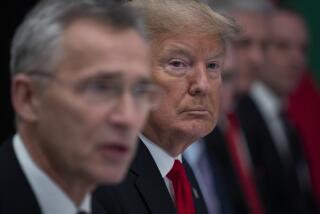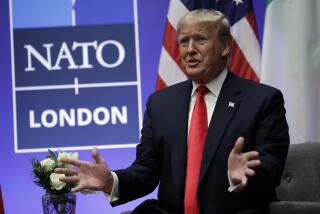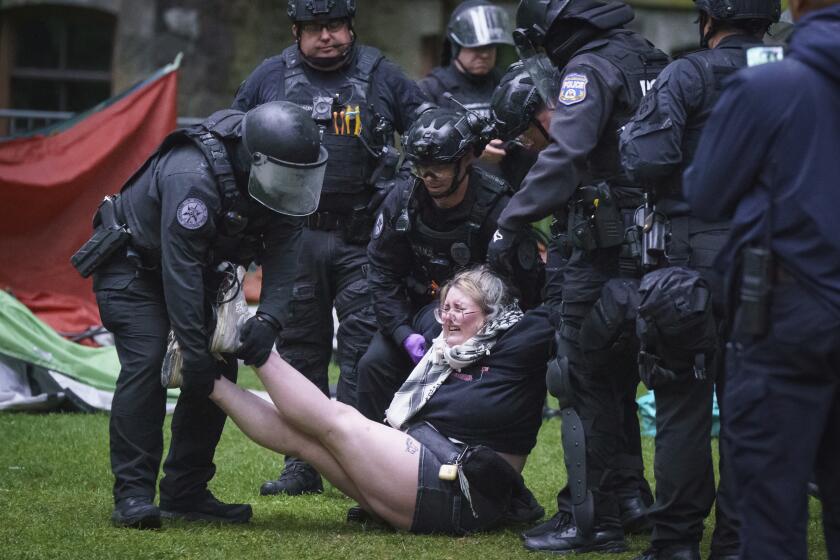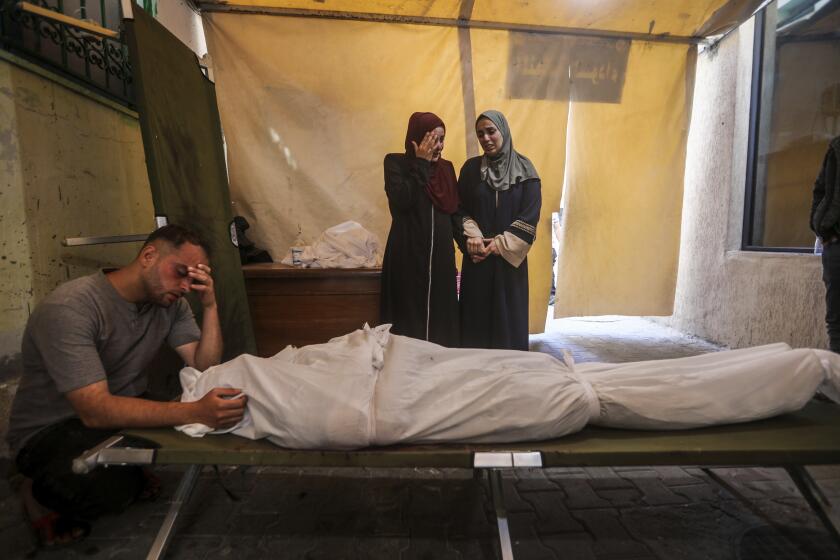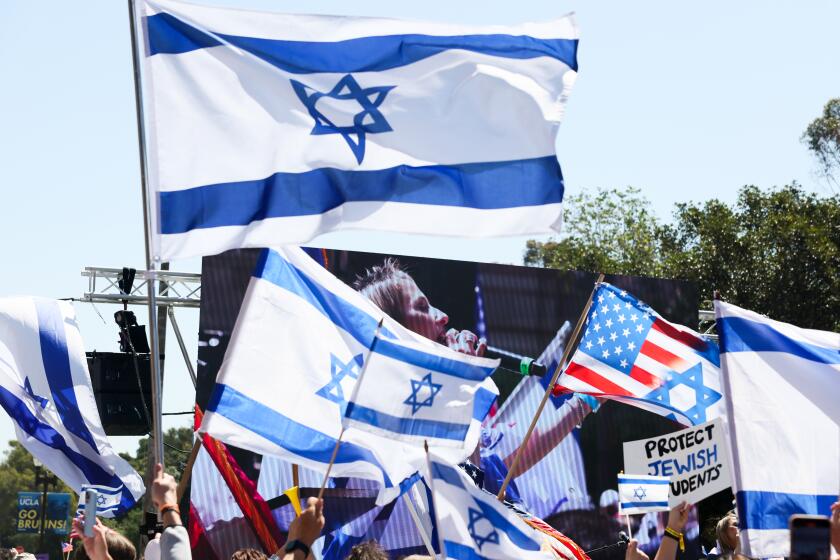Trump’s war with U.S. intelligence agencies just got a lot worse
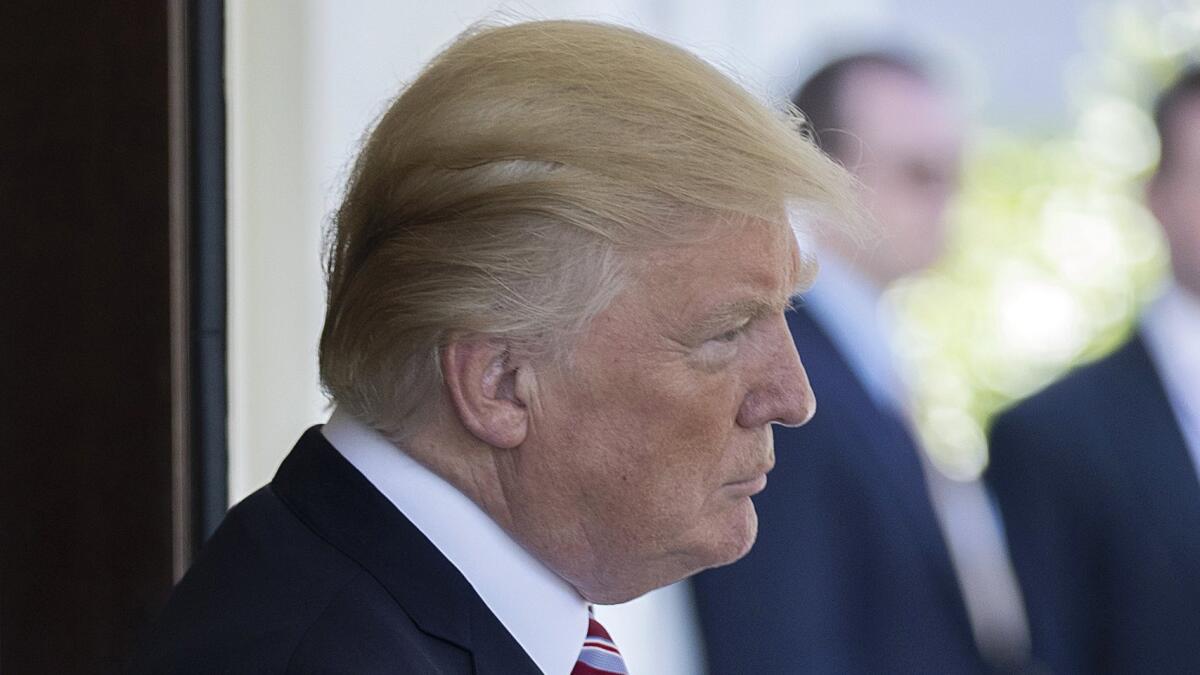
After his election last fall, President Trump often seemed at war with the CIA and the 16 other U.S. intelligence agencies.
He likened them to Nazis. He mocked their judgment that Russia had intervened in the campaign to help him win. And he repeatedly accused them of leaking to the media to embarrass him and undermine the White House.
But Trump’s acrimony with America’s spy services has escalated sharply over concerns that he disclosed highly classified intelligence about Islamic State to senior Russian diplomats that had been obtained in Syria, reportedly by Israel, and had been given to Washington on the condition it go no further.
“This is going to set [Trump’s relations with U.S. intelligence] back even more,” warned Michael V. Hayden, a retired four-star general who has headed the CIA and National Security Agency under both Democratic and Republican administrations.
Intelligence veterans believe “their jobs are being made far more difficult by having to deal with the unpredictability of the president,” Hayden said.
“The key to intelligence is discretion, but how do you operate with a boss who is congenitally indiscrete?” asked Derek Chollett, who was a senior Pentagon, State Department and National Security Council official during the Obama administration.
Trump’s disclosure of sensitive threat information to the Russians — which national security advisor H.R. McMaster defended Tuesday as “wholly appropriate” — raised fears that U.S. allies might scale back intelligence-sharing, cutting off a vital source of spying tips, if they cannot trust Trump to keep closely held secrets.
It wasn’t clear whether the intelligence was collected by an informant inside Islamic State or a surveillance device, but intelligence officials fear the source may be blown by now.
The damage could go deeper if Trump, who heads to the Middle East and Europe on Friday on his first major foreign trip, grows even more convinced that some U.S. intelligence officials are using leaks as payback for his disparaging remarks, and comes to trust them less.
U.S. officials faced a more immediate dilemma because Trump’s disclosure concerned an Islamic State threat to aircraft from computer laptops, and the U.S. has not shared the same details with European allies believed to be directly at risk, according to a former senior U.S. official.
In March, U.S. and British officials barred passengers from bringing computer laptops and tablets in carry-on bags aboard flights departing from 10 airports in eight countries in the Middle East and North Africa.
The ban was based in part on intelligence that Islamic State had acquired airport screening equipment and was testing ways to hide bombs in portable electronic devices larger than a cellphone, the former official said.
The Trump administration has been considering expanding the laptop ban to passenger flights from Europe just as the summer tourist season starts. Senior officials from the Department of Homeland Security are supposed to brief their counterparts Wednesday at a meeting in Brussels.
The ban is hugely controversial, and not just because it would inconvenience travelers and airlines. Some experts warn that the lithium batteries in laptops could catch fire in aircraft cargo holds, posing another threat.
To intelligence officials, attuned to the need to protect intelligence sources and methods, Trump’s comments last Wednesday to Russian Foreign Minister Sergei Lavrov and Russian Ambassador Sergey Kislyak crossed a red line because it involved intelligence provided by an ally on condition it not be disseminated further.
To Trump and his aides, his disclosure in the unusual Oval Office meeting, a revelation first reported by the Washington Post, was just the latest damaging leak to the media that they blame on intelligence officials.
“I think national security is put at risk by this leak and by leaks like this,” McMaster told reporters Tuesday at the White House.
Trump could not have divulged sensitive intelligence sources and methods because he had not been briefed on them, McMaster said, adding that the president “wasn’t even aware of where this information came from.”
McMaster did not dispute that a senior White House official had alerted the CIA and NSA about Trump’s disclosure to the Russians after the meeting.
House and Senate Committees investigating Russia’s role in the presidential election have indicated they may now broaden their inquiries to include Trump’s meeting with the Russian envoys. CIA Director Mike Pompeo briefed the House Intelligence Committee late Tuesday in a closed session that officials said was previously scheduled.
Other presidents have had frosty relations with America’s spies.
Richard Nixon carried a grudge against the CIA for his election loss to President Kennedy in 1960, believing the agency had failed to debunk Kennedy’s false claim that the U.S. had fallen behind the Soviet Union in intercontinental ballistic missiles — the so-called missile gap.
After Nixon was elected in 1968, he never met privately with the three CIA directors who served under him other than in ceremonial meetings. He had a single telephone conversation with William E. Colby, who headed the spy service during the Watergate resignation scandal, the agency revealed last August.
The dispute between Trump and intelligence officials arose ahead of his inauguration, when U.S. intelligence agencies concluded that Russian spy services had hacked Democratic Party emails and sought to influence the U.S. election to undermine Hillary Clinton and help Trump win. Trump publicly denounced the report.
Trump also was furious after FBI Director James B. Comey privately informed him that the FBI had received a dossier compiled by a former British intelligence officer that claimed that Russians had gathered blackmail material against him and that people in his orbit had met with Russian agents during the campaign.
The unsubstantiated information was contained in a 35-page file released in January by BuzzFeed.
“It was disgraceful — disgraceful that the intelligence agencies allowed any information that turned out to be so false and fake out,” Trump said at a Jan. 11 news conference in New York. “That’s something that Nazi Germany would have done and did do.”
Trump’s visit to the white marble lobby at CIA headquarters on Jan. 21, his first full day in office, was seen as an effort to bury the hatchet and start anew.
But as Trump stood before a memorial wall marked with 117 gold stars for U.S. spies killed in the line of duty, he didn’t mention their sacrifice. He instead boasted about his electoral victory, complained about the media and bragged that “probably everybody in this room” had voted for him.
Twitter: @davidcloudLAT
ALSO
Why the Comey memo could be so explosive for Trump
Trump’s big test with Republicans, who aren’t coming to his defense so far
More to Read
Start your day right
Sign up for Essential California for news, features and recommendations from the L.A. Times and beyond in your inbox six days a week.
You may occasionally receive promotional content from the Los Angeles Times.

